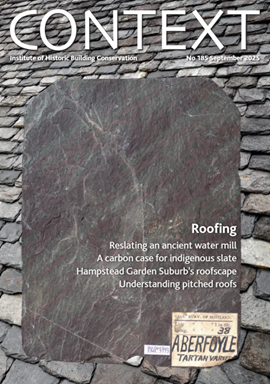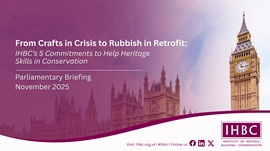RAAC causes temporary closure of St Davids Hall
Image for illustration – St David’s Hall by Jklo286 – Own work, CC BY-SA 4.0
[edit] IHBC’s RAAC update: Temporary closure of Cardiff’s St David’s Hall
Cardiff Council has issued a statement that the newly listed St David’s Hall is to temporarily close to the public to undertake additional checks on the Reinforced Autoclaved Aerated Concrete (RAAC) panels in the building.
St David’s Hall writes:
The decision has been taken in light of the recent change to advice on RAAC in public buildings issued by the Health and Safety Executive (HSE) and following further discussions with the Council’s appointed independent structural engineers, and the council’s insurers.
The council has been aware of RAAC in St David’s Hall and the need to manage it from a health and safety viewpoint since 2021, and it has always followed government guidelines and advice to ensure the building was safe.
A building management and health and safety strategy has been implemented at the venue for the past 18 months. This included regular inspections by independent structural engineers with specific RAAC expertise.
Throughout this time no issues were raised about the condition of RAAC in the building and there was no evidence of deterioration – and this remains the case.
However, the Council has continued to engage with its insurers and expert structural engineers and, based on advice received today from those experts, we believe it is prudent and responsible to carry out intrusive surveys to further reassure ourselves and the public on the safety of the Hall. This will require drilling into panels to confirm their interior construction and to determine if any further work is required to ensure continuing safety.
Consequently, we will be bringing structural engineers – who are RAAC experts – back on site to do fresh tests on RAAC panels in the building.
We expect this procedure could take at least 4 weeks, and we will look to re-open the Hall as soon as possible, dependent on any action which may or may not be required.
We know this will cause a lot of inconvenience and disappointment, and we would like to apologise to all our customers, but we hope you will understand that the safety of audiences, staff, artists, volunteers, and everyone at the venue is paramount, and that the Council is obliged to act in response to the updated HSE guidance and expert advice.
We will be contacting promoters and hirers to discuss the potential for rescheduling performances and to review all other options. There is no need for customers to contact St David’s Hall, we will be in touch with all ticket holders about options available to you once we have spoken with each affected show’s promoter. We would be grateful if customers could give us the space to undertake this work so that we can come back to you as quickly as possible about your ticket purchase/cancelled event.
The Council has been consistently clear on the need for investment into St David’s Hall to secure its long-term future, addressing the RAAC and other maintenance issues, all of which was confirmed in a Cabinet report last year.
We continue to work to progress the transfer of the hall to Academy Music Group (AMG). Ahead of taking over the operation of St David’s Hall, AMG had already undertaken its own inspections and has plans in place to undertake remedial work required in the medium to long-term. We will be keeping them appraised of the actions we are taking.
Once again, we apologise to customers of St David’s Hall for the late cancellation of shows, and we want to reassure you that we will be in touch to discuss rescheduling of performances and/or alternatives. Please follow the St David’s Hall website’s news section, for updates. Thank you for your understanding and patience.
This article appears on the IHBC news and blog site as "IHBC’s RAAC update: Temporary closure of Cardiff’s St David’s Hall" dated September 15, 2003.
--Institute of Historic Building Conservation
[edit] Related articles on Designing Buildings
- Aerated Concrete.
- Autoclaved Aerated Concrete.
- Aggregate.
- Alkali-activated binders for precast and ready-mixed concrete products: New supply chains, business models and environmental benefits.
- Alkali-silica reaction (ASR).
- Binding agent.
- Cement.
- Cement-free precast product.
- Cement mortar.
- Concrete.
- Concrete masonry unit CMU.
- Ferro-cement.
- Fibre cement.
- High alumina cement.
- Lightweight concrete solutions.
- Lime mortar.
- Limestone calcined clay cement LC3.
- Mortar.
- Mortar analysis for specifiers.
- Mundic.
- Plaster.
- RAAC.
- Reinforced Autoclaved Aerated Concrete.
- Portland stone.
- Screed.
- Shotcrete technology.
- Stucco.
- Thomas Edison's concrete cottages.
- Types of cement.
- Types of concrete.
- Portland cement.
IHBC NewsBlog
Latest IHBC Issue of Context features Roofing
Articles range from slate to pitched roofs, and carbon impact to solar generation to roofscapes.
Three reasons not to demolish Edinburgh’s Argyle House
Should 'Edinburgh's ugliest building' be saved?
IHBC’s 2025 Parliamentary Briefing...from Crafts in Crisis to Rubbish Retrofit
IHBC launches research-led ‘5 Commitments to Help Heritage Skills in Conservation’
How RDSAP 10.2 impacts EPC assessments in traditional buildings
Energy performance certificates (EPCs) tell us how energy efficient our buildings are, but the way these certificates are generated has changed.
700-year-old church tower suspended 45ft
The London church is part of a 'never seen before feat of engineering'.
The historic Old War Office (OWO) has undergone a remarkable transformation
The Grade II* listed neo-Baroque landmark in central London is an example of adaptive reuse in architecture, where heritage meets modern sophistication.
West Midlands Heritage Careers Fair 2025
Join the West Midlands Historic Buildings Trust on 13 October 2025, from 10.00am.
Former carpark and shopping centre to be transformed into new homes
Transformation to be a UK first.
Canada is losing its churches…
Can communities afford to let that happen?
131 derelict buildings recorded in Dublin city
It has increased 80% in the past four years.
















